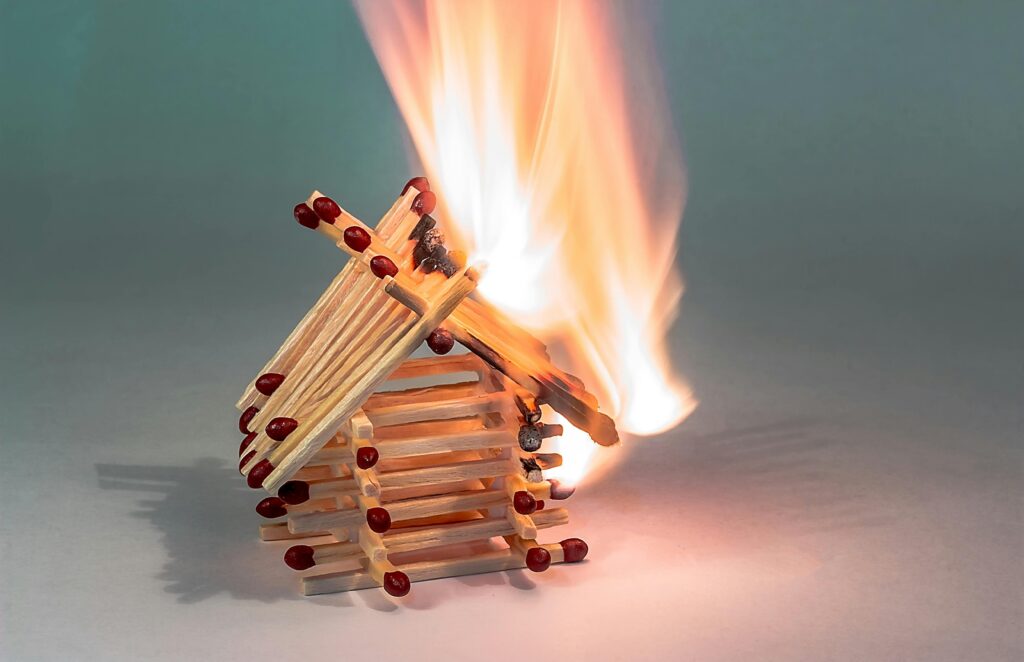Everywhere we look, we see signs of climate denial, whether explicit as in people who are so traumatized by the idea of everything they care about coming crashing down that they outright refuse to entertain the possibility and consequences of ecological collapse (precipitating economic, social, and political collapse, not to mention for many of us psychological collapse); or, as renowned hockey stick graph climate scientist Michael Mann describes in his book The new climate war: the fight to take back our planet, there is the soft denialism that might be more familiar to many of us — the acceptance of anthropogenic climate change, but the downplaying of the actual effects this will have for our routine and daily life. I myself, despite being a professor of environmental philosophy, have a tendency to compartmentalize my life, despite the work I deal with every day. After all, I still (occasionally) fly; eat my share of cheese; and contribute to climate change in numerous other ways to the degree that if everybody lived the lifestyle that I enjoy, it would require much more than a single Earth’s worth of resources. (Immanuel Kant’s Categorical Imperative famously made the ethical injunction that we should live our lives such that we would approve of everyone else living their lives similarly.) And on this account, I am absolutely unprepared for catastrophic climate change leading to collapse. In fact, the prospect is deeply frightening to me; both for myself, and for everyone and everything I care about. Will we turn to burning the books of our libraries to stay warm? Will we end up fighting each other for scraps, descending into barbarism? These are certainly things farthest away from my wishes, and yet there is no security from our current dysfunctional governments and economic systems that we will be able to avoid them. In fact, every years, it feels like we are doubling down on precisely those sorts of Moloch-like broken Nash equilibrium game theoretical dynamics that Daniel Schmachtenberger and Nate Hagens discuss in their exchange.
Degrowth as a framework takes Jem Bendell’s thesis seriously: that near-term societal collapse based on climate change tipping points is inevitable. Degrowth proposes a ‘soft landing’ approach to deal with this inevitability, whereas doing nothing is predicted to leave us facing a ‘hard landing’, which means that we are utterly unequipped to deal with the fallout. Without the proper skills, networks, backup resources, or community, to meet even our basic needs without the current just-in-time global commodity chains of exploitation we all rely on. When Bendell discusses the need for a “Deep Adaptation Agenda” in response to the overlooked research into collapse (sometimes also known as ‘collapsology’), I agree that this also involves querying our own “psychological and spiritual implications” of collapse, which may act as barriers to being able to confront this possibility, leading to less research into the domain. I found myself nodding along when Bendell writes of the psychopathy of “balance” between pros and cons, likelihoods, and the ‘false equivalency’ of perspectives: So often by believing ourselves to be reasonable, we are showcasing our profound illogic, which masks our fear of taking scary things as serious possibilities (and what taking such issues seriously might entail for every aspect of our lives, especially if we live relatively comfortable ones). ‘Runaway climate change’ is scary precisely because we live in a culture of control; we believe that we can fix everything, like spraying sulfur aerosols into the sky as a planetary air conditioner, or just suck up our carbon like a vacuum cleaner sucks up dirt. But to stay with that analogy for a moment, where does that dirt go? What powers the vacuum cleaner? How longer will the vacuum last before it breaks down and needs to be replaced? When we scale up these questions and problems, we real the absurdity of our fantasies of global control. Perhaps ecomodernists are the true globalists–they uniquely believe that ecology and biology, let alone planetary systems, are just clockwork that require sufficent technolgy and tinkering to ‘fix.’ From such a perspective, there is never a ‘too late’; and thus we can continue business as usual (until, of course, we can’t). What Bendell calls ‘runaway climate change’ isn’t just about climate, it is also about the social “norms of behaviour, that we call our ‘civilisation,’ [which] may also degrade.” Such insights are precisely why the better we prepare ourselves from collapse, the less traumatic it will be, and the more psychologically prepared (as much as other ways) we will be to confront it in a generous, calm, and practical manner. Collapsology investigates how climate destabilization “impacts on agriculture, international relations, social unease, crime, civil conflict, disease prevalence, financial stability, and so on, can cascade to create a breakdown of societies,” destabilizing a panoply of institutions and norms we take for granted. In other words, looking collapsology in the eyes allows us to reexamine many of our essentialist constructions, about humankind as much about culture and ecology, which we explicitly and implicitly depend on. This breaking down of the status quo is both a creative period of reinvention and regeneration (according to Gunderson and Holling’s adaptive cycle), but also one of destruction and loss. Being able to hold the emotional space for this turmoil requires developing new forms of deep social solidarity, reskilling, and localism largely forgotten in our digital metro age.
